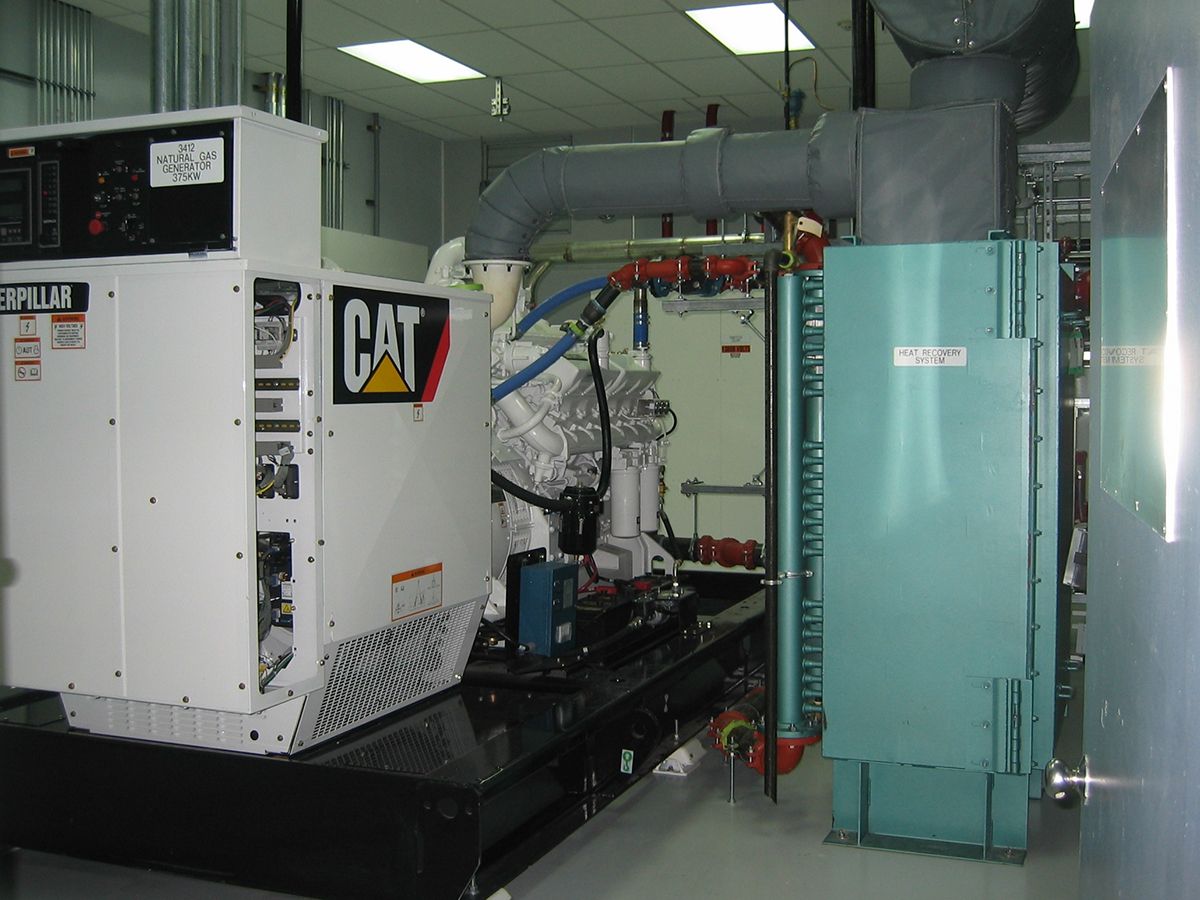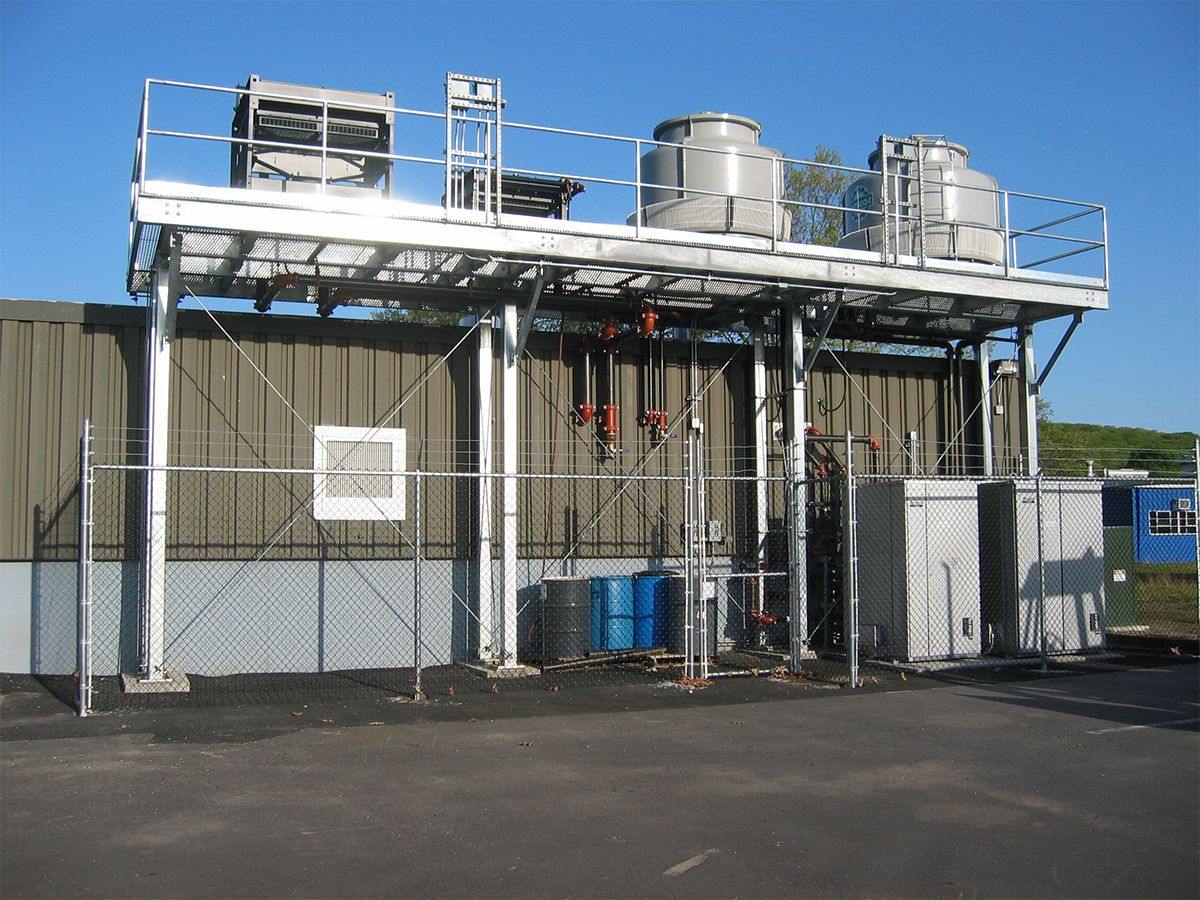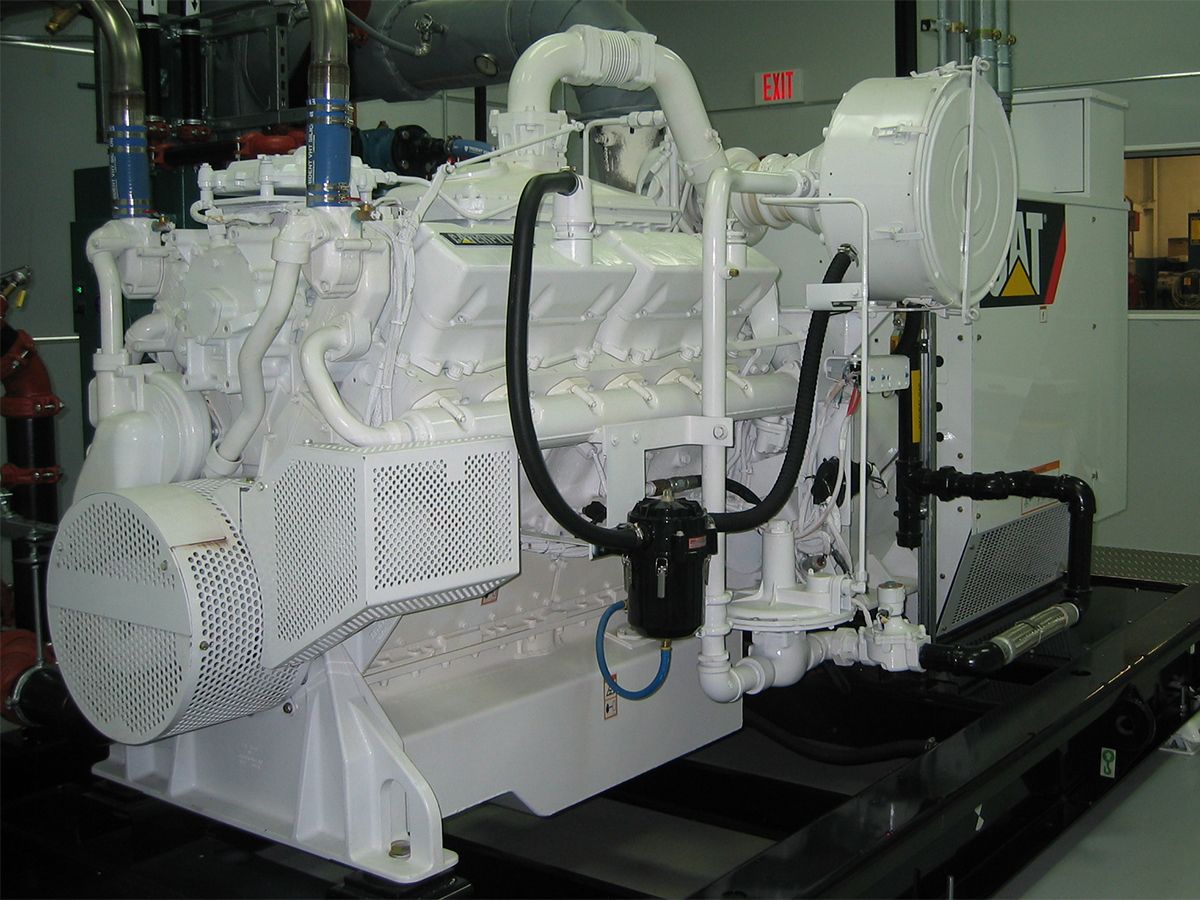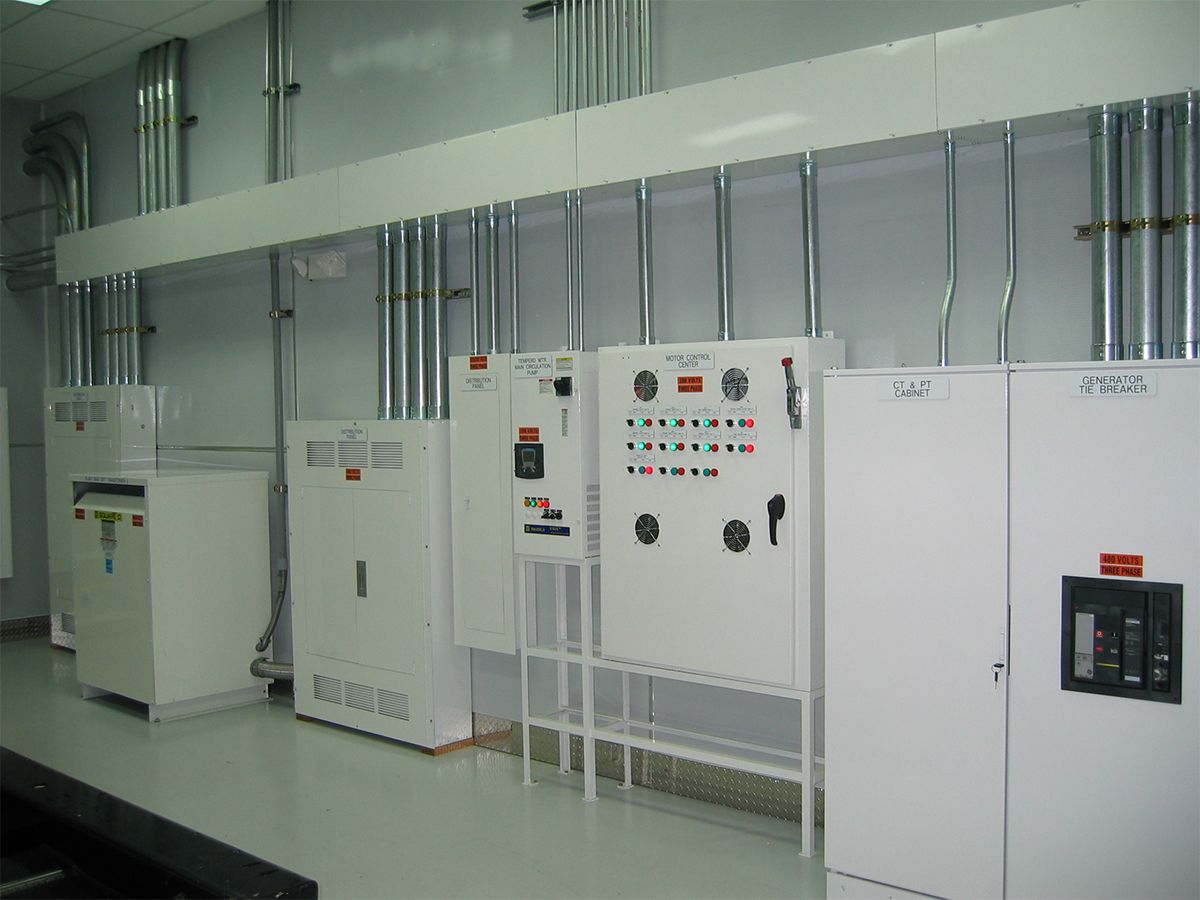Customer: Plainville Electrical Products Company
Location: Bristol, Connecticut
Customer Buisness Issue: Demonstrate customer-designed control system
Solution: Cat G3412C generator set
Cat Dealer: H.O.Penn
Power Need
Plainville Electrical Products Company (PEPCO) has been designing and manufacturing electrical control systems and distribution panels for commercial and shipboard use since 1922. Many of these systems have been installed on U.S. Navy ships and large yachts. PEPCO has also designed a number of power management and generator control systems for utility applications. With experience in the utility market and extensive knowledge of control systems design, the PEPCO engineering team combined these areas of expertise to create a cogeneration plant that would be ideal for manufacturing and commercial facilities, including hotels, hospitals, data centers and other facilities with large heat loads.
To help demonstrate the feasibility of the newly designed control system to potential customers, the PEPCO team wanted to install a functioning example at their office and manufacturing facility in Bristol, Connecticut. With the help of a grant from the state’s Department of Energy and Environmental Protection (DEEP) to help offset the cost, the project moved full steam ahead.
Solution
Fred Anderson, project manager with PEPCO, knew he wanted to use a Cat® generator to build this cogeneration plant. “I was very familiar with Cat generators from previous marine generator and engine applications, and I went straight to them,” said Anderson. A natural gaspowered generator was chosen because it would meet the emissions requirements and it’s powered by a local fuel source. After consulting with local Cat dealer H.O.Penn, Anderson selected a G3412C generator set, capable of generating 375 kW during continuous use. All design, engineering and control work was done by the PEPCO design team.
Visual checks of the cogeneration plant’s components are performed daily by maintenance staff, but the operation is fully controlled by the PEPCOdesigned automated control system. The system starts and stops the operation at predetermined times and adjusts recovered heat based on thermal demand to maximize efficiency. The control system essentially runs the whole building, including lighting, the heating and cooling system, and the alarm.
The waste heat from the generator powers two absorption chillers. These combination chiller/heater units provide 95 percent of the facility’s heating and cooling needs. By harnessing this waste heat, the system efficiency is increased from 35 percent to about 70 percent.
The generator typically runs from 6:30 a.m. to 5 p.m., Monday through Friday, at a base load capacity of 200 kW. PEPCO’s average electrical load is 65 kW, meaning 135 kW goes back to the grid. The DEEP grant PEPCO received is designed to help increase local grid capacity. To achieve this, the generator runs longer hours and at a higher load limit of 375 kW during designated peak times, typically during summer and winter months.
Results
The cogeneration plant went online in 2008 and has exceeded expectations. When small problems do arise, H.O.Penn immediately fixes them. Said Anderson, “The relationship we have with H.O.Penn is one of the best working relationships we have with a vendor. Their sales and service teams are always right there if we need them.” With the help of the DEEP grant and the power sold back to the grid, Anderson expects the project to fully pay for itself soon.
The cogeneration installation has also served its purpose as a helpful sales tool. Anderson said that after a customer’s first visit to the project demonstration, he decided to add a similar cogeneration plant to his manufacturing facility.



